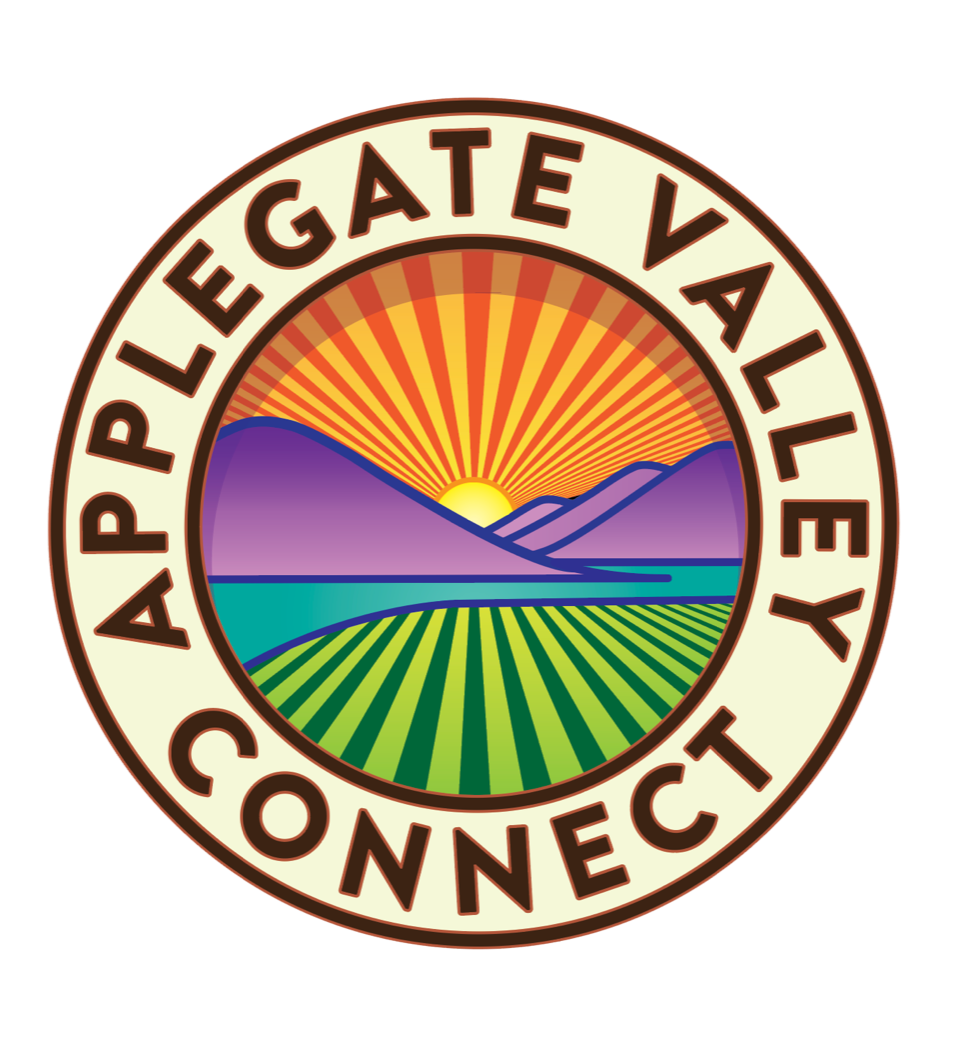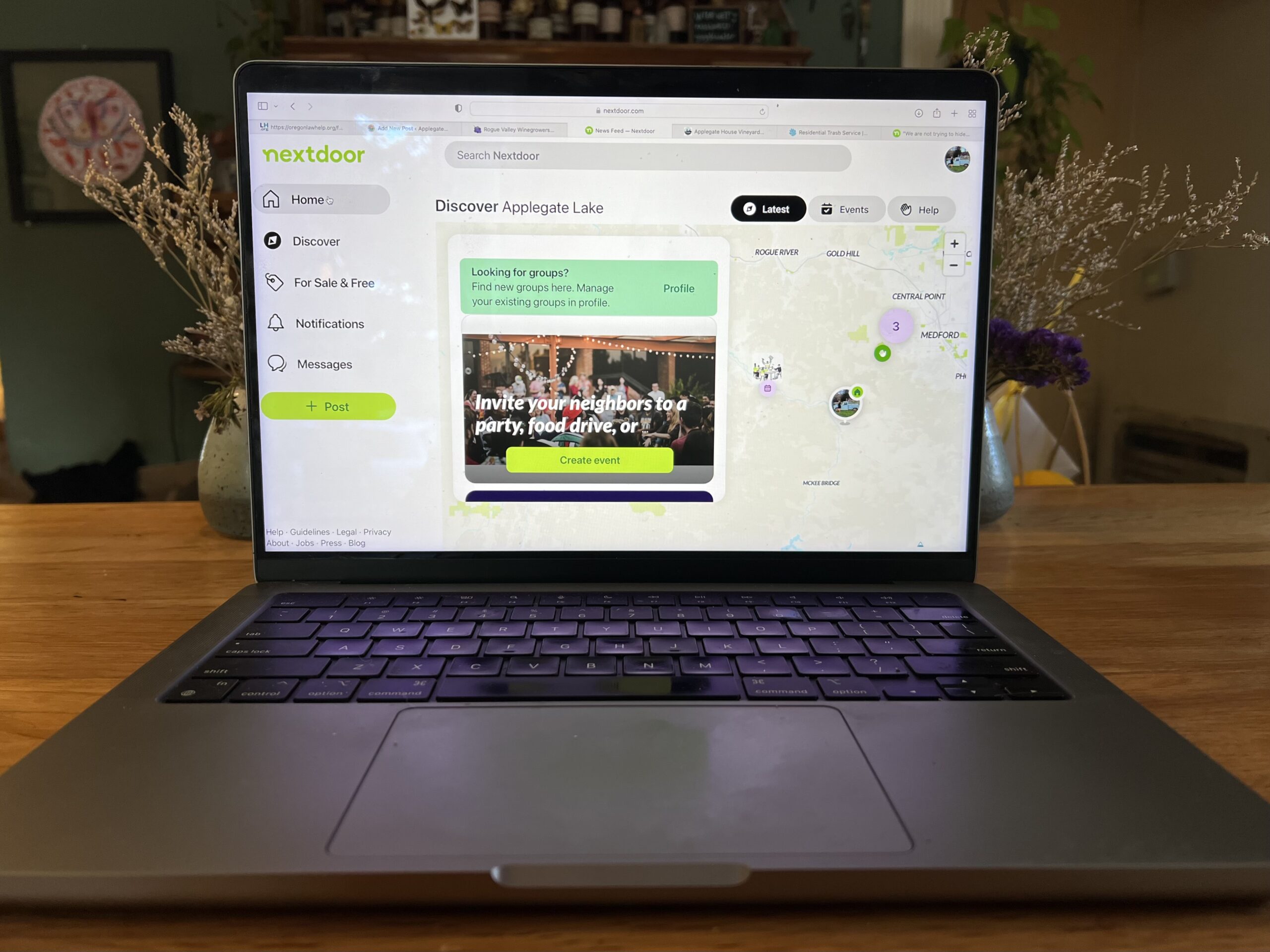Are we frittering away our power on social media?
(An Op-Ed by Gabrielle Pullen, MFA)
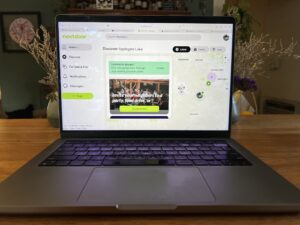
When I walked through the door of the recent board meeting of the Applegate District 9 fire training facility, I was thinking about democracy—about what it means to actually participate in it. What is the extent of our power as, “We, the people?”
The meeting room was packed. Applegate residents wanted to know more about the District Board’s recent decision to put Fire Chief Mike McLaughlin on administrative leave. Few public details led some to suspect a private agenda; others simply questioned the process by which this democratically elected board was used to dismiss the Chief.
But the stance of the Board remained consistent: They were acting in good faith. There was no corruption. The bylaws they were bound to prohibited any disclosure.
The first order of business in regards to the Chief was to convert his separation agreement to a termination agreement (at the Chief’s request). Then the floor was then opened for public comment.

I had signed in on the speaker’s sheet, along with about ten other people, but there were at least 50 people or more present. I was surprised. I’d been following an active and energetic thread on the local Next Door app that challenged the right of the District board members of to withhold the details. But at the meeting, the participation paled in comparison to that social media thread.
The people who did sign up to speak included four or five who have served or worked with Fire prevention in a variety of capacities. Several of them used their allocation of three minutes to affirm that the volunteers on the ground were satisfied with the decision.
One man, who had spent six years working as a volunteer fire fighter, affirmed the general consensus that our volunteers and firefighters at District 9 are a great group of people, and we are lucky to have them. He also said that the board is made up of elected volunteers and if you don’t like who is on the board, you are free to elect other people next time around.
A few members of the public spoke up to suggest that the public should be included in the decision-making. Priscilla Weaver was especially eloquent. She first thanked the fire department for saving her husband in an emergency. She then went on to say that when someone is terminated without cause, it might suggest some private agenda. Perhaps, she suggested, the decision could be tabled to allow for public input.
Next, three or four people from the sign-up sheet were offered a chance to speak. They all passed. But when they read out my name, I accepted. I had nothing prepared. I hadn’t realized that by signing in, I was agreeing to speak. But I was glad for the opportunity.
This is how democracy is supposed to work, isn’t it?
When I reached the podium, I said that I, too, saw a red flag when I heard that such a consequential decision had been made without an explanation to the public about what provoked such a drastic change in leadership.
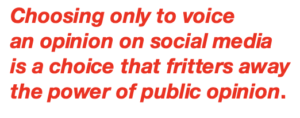
If this is the system the board is required to observe, perhaps we need to change the system.
After I sat down, I realized that I have very different ideas about what democracy means than most. I was more and more stunned, as about ten more people who had signed in, declined their turns to speak.
What is going on here? I wondered. Where was all of the bluster that was expressed on our local social media forums?
Maybe people are scared to speak in front of a group? Maybe they feel they aren’t eloquent enough? Maybe the pressure to say something unique was holding them back? But these concerns entirely miss the point: The only power we have in a democracy is to exercise our right to participate.
Are we wasting away our power as citizens by venting on social media?
Choosing not to participate in democracy IS a choice—one that affects everyone. It implies apathy. Apathy gives people in authority wings to 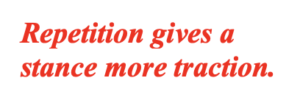 do whatever they want. Democracy demands oversight, just like any other workable system. We, the people, are meant to be providing that oversight. Choosing only to voice an opinion on social media is a choice that fritters away the power of public opinion.
do whatever they want. Democracy demands oversight, just like any other workable system. We, the people, are meant to be providing that oversight. Choosing only to voice an opinion on social media is a choice that fritters away the power of public opinion.
Even if you don’t feel eloquent, or feel you are just repeating what’s already been said, it’s important to speak. Repetition gives a stance more traction. If 20, or 25 or even all 50 of the people present at the fire station had stood up and simply stated exactly the same thing in a single sentence, repeated over and over again, do you think it would have made an impact?
Probably more impact than staying home and venting on social media.
